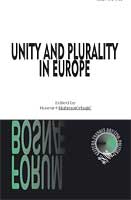Translation Borders and Limits
Translation Borders and Limits
Author(s): Riccardo PanattoniSubject(s): Social Sciences
Published by: Međunarodni forum Bosna
Keywords: saved language; ethos; ethics of communication;
Summary/Abstract: This year, at the University of Verona, where I teach, I was asked to hold a course on “the Ethics of Communication”. The first difficulty that I encountered was the question I put to myself of whether it was still possible to express an ethos through communication, of whether, in other words, the communicative act which we participate in concretely, could still be considered to be the carrier of an ethos, of a living together. With respect to this basic question, and bearing in mind the contents of the course I was going to teach what I immediately turned to was obviously the question of language. This is a subject that contemporary philosophy, both of the “continental” type and the “analytical” type, has worked on for a long time. In fact, we could further to quite easily say that it has been one of the most driving subjects of all twentieth century philosophy. Language, however, as soon as it becomes communication,is inevitably involved with specific languages. Communication always takes place exclusively in one language. Is the language which is habitually spoken, however, the so-called mother tongue, merely arbitrary when compared with the content that we wish to express? Can each language express freely enunciate pure content regardless of the limits posed by its articulation? Is there not a limit which appears between language in general and the specific language being spoken, a limit which is a point of contact and also of irresolvable difference? If this limit manifests itself, how is it embodied? How can we speak about it?
Journal: Forum Bosnae
- Issue Year: 2006
- Issue No: 38
- Page Range: 30-41
- Page Count: 12
- Language: German
- Content File-PDF

